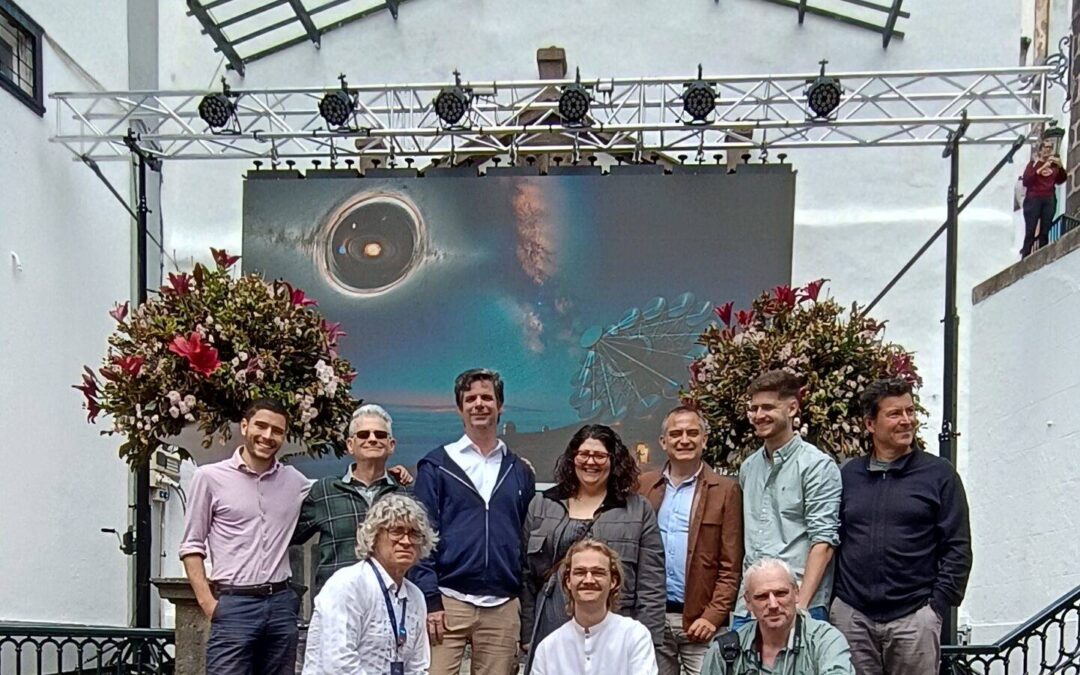A Confluence of Science, Technology, and the Exploration of Life in the Universe.
During the latest edition of the STARMUS festival, held on the island of Tenerife, the Laboratory for Innovation in Opto-Mechanics (LIOM) of the Instituto de Astrofísica de Canarias (IAC) consolidated its position as one of the leading European initiatives in the development of novel optical technologies applied to the search for life in the universe|
Under the direction of Prof. Jeffrey Kuhn, ERA Chair of LIOM, Distinguished Senior Researcher at the Instituto de Astrofísica de Canarias (IAC), and Professor at the University of Hawai‘i, LIOM’s primary objective is to drive the design and implementation of advanced photonic and optical technologies capable of equipping future telescopes with unprecedented resolution capabilities. This initiative is framed within the development of the Small-ELF (Small ExoLife Finder) prototype—an innovative infrastructure designed for the direct observation of potentially habitable exoplanets using stellar light nulling interferometry techniques.
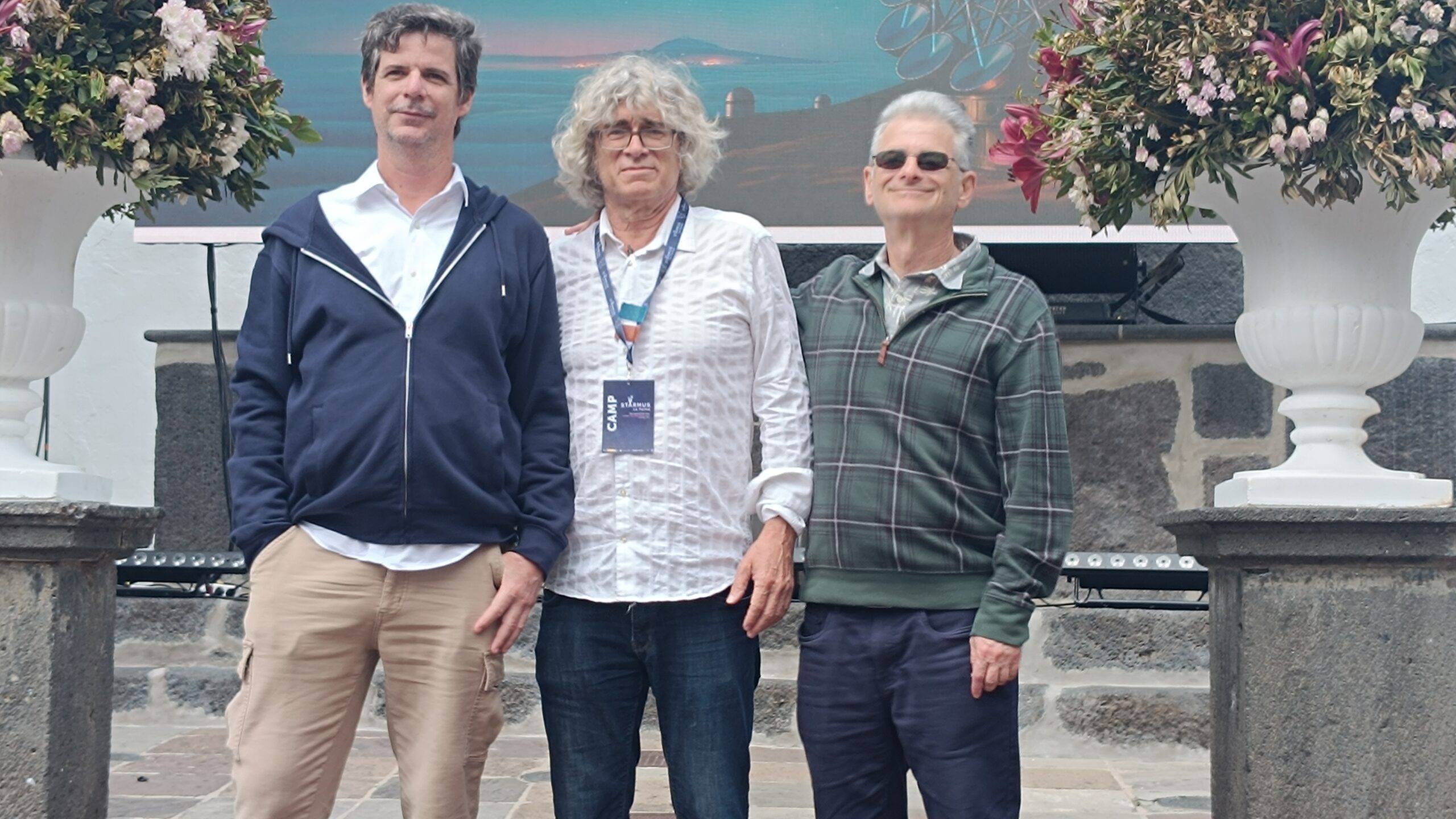
Gustavo Medina Canary Global management team, Jeff Kuhn,
LIOM/ ELF Astrophysicist Lead, and Professor at the University of
Hawai‘i, Adolfo Nemirovski, CEO at Canary Global Foundation
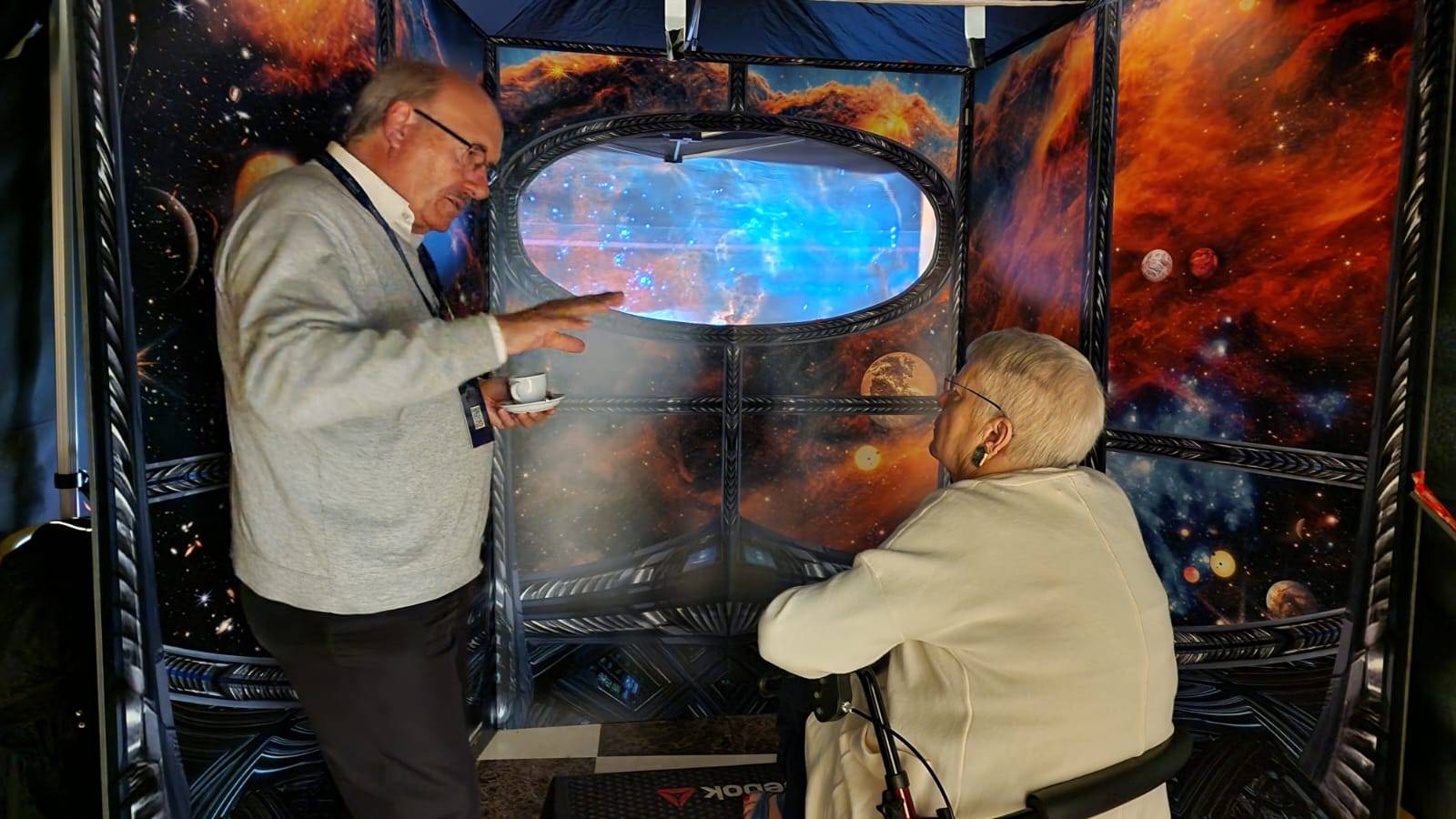
LIOM booth at Starmus being visited by Jill Tarter and Rafael Rebolo
STARMUS 2025
STARMUS 2025 served as a strategic platform that placed LIOM among the five leading scientific projects committed to the search for life beyond Earth. As explained by Prof. Valentín Martínez Pillet, Director of the IAC, the laboratory’s participation in this international forum represents a significant institutional achievement, positioning the IAC as a hub of innovation in the creation of instruments that will shape the astrophysics of the coming decades.
The festival featured noteworthy contributions from key figures in astrobiology and cosmology. Dr. John Mather, Nobel Prize in Physics (2006) for his contributions to the empirical validation of the Big Bang model, shared his hopeful vision regarding the possibility of finding life on other planets: “We are investigating whether there are other solar systems like ours, other worlds like Earth. And now, for the first time, we have the technology to look.”
“We are investigating whether there are other solar systems like ours, other worlds like Earth. And now, for the first time, we have the technology to look.”
In line with this perspective, Prof. Michel Mayor, discoverer of the first exoplanet, stated during his talk: “I believe there should be plenty of planets with life.” While acknowledging the biological complexity of life’s emergence, Mayor emphasized that “life is a normal outcome in the development of the universe,” and stressed the importance of advancing technologies like those promoted by LIOM in order to rigorously address this fundamental scientific question. The LIOM and Small-ELF initiative also received support from Dr. Jill Tarter, pioneer of the SETI project, who underscored the urgency of creating telescopes capable of studying the physical and atmospheric characteristics of exoplanets, identifying indirect signs of life such as the presence of water, deserts, or vegetation. “The challenge is not whether life exists, but whether we can build the instruments to find it,” she stated.
The challenge is not whether life exists, but whether we can build the instruments to find
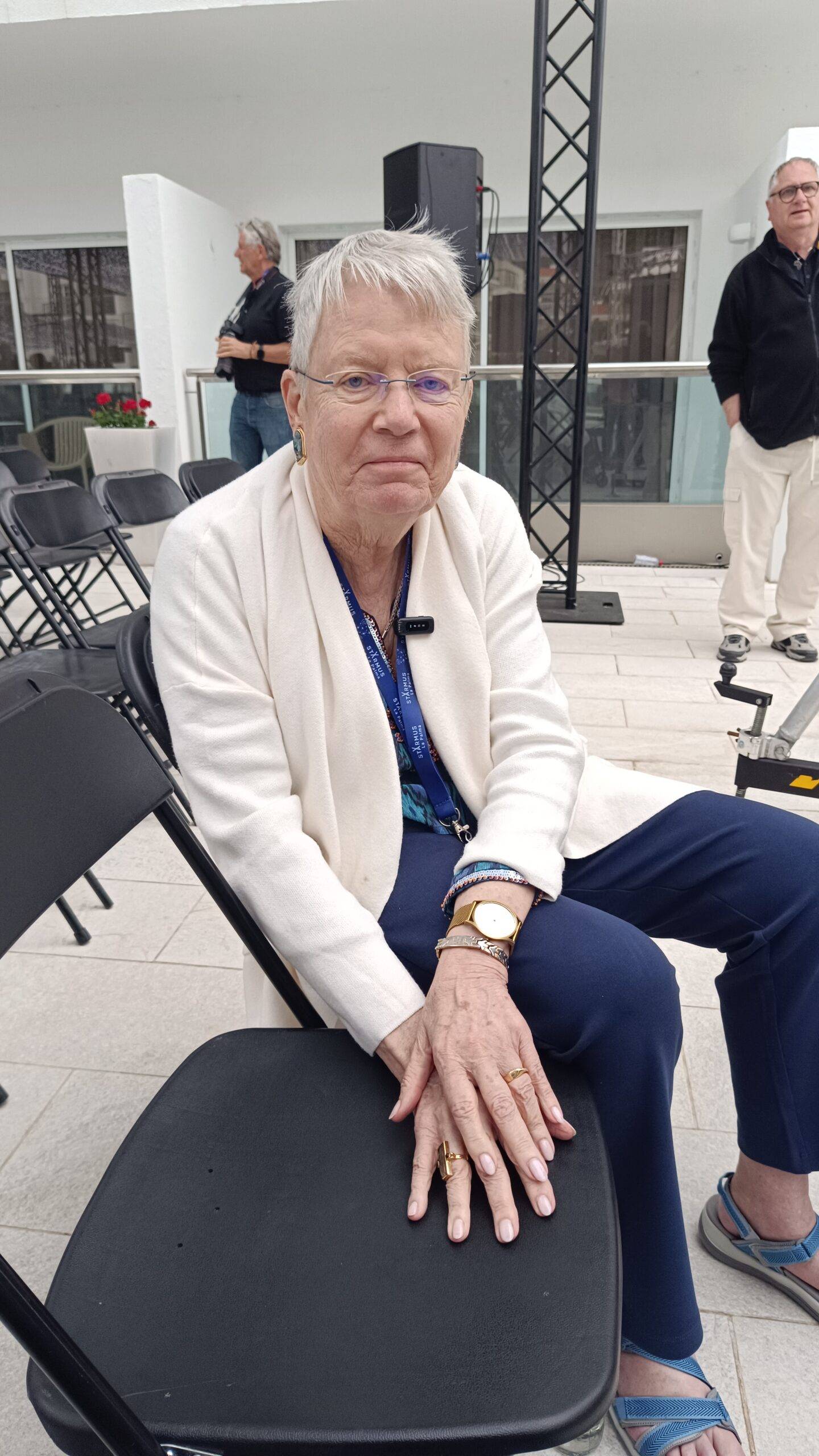
Jill Tarter, Astrophysicist, SETI Pioneer, and supporter of LIOM/ ELF.
We are on the threshold of a paradigm shift
Astrophysicist and author Mario Livio, along with other international speakers such as Avi Loeb and Sara Seager, agreed that we are on the threshold of a paradigm shift. The detection of life beyond Earth will profoundly alter our understanding of our place in the cosmos.
In this context, LIOM’s presence at STARMUS was not only an opportunity for technological exhibition but also a reaffirmation of its mission: to help build an international scientific community equipped with the tools necessary to address one of the greatest questions of our time: Are we alone?
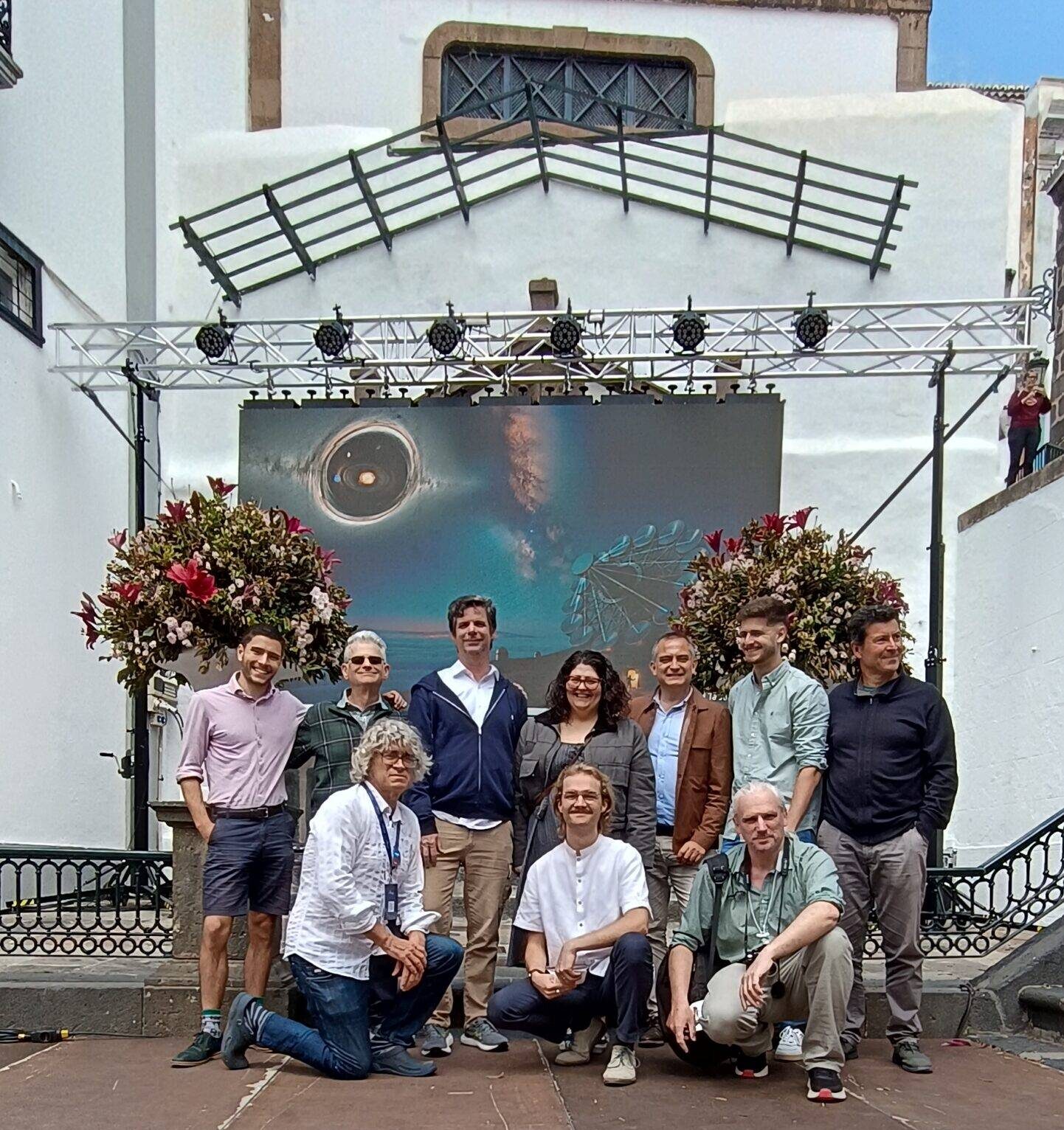
FestivalLIOM/ ELF Team at The 2025 Starmus Festival
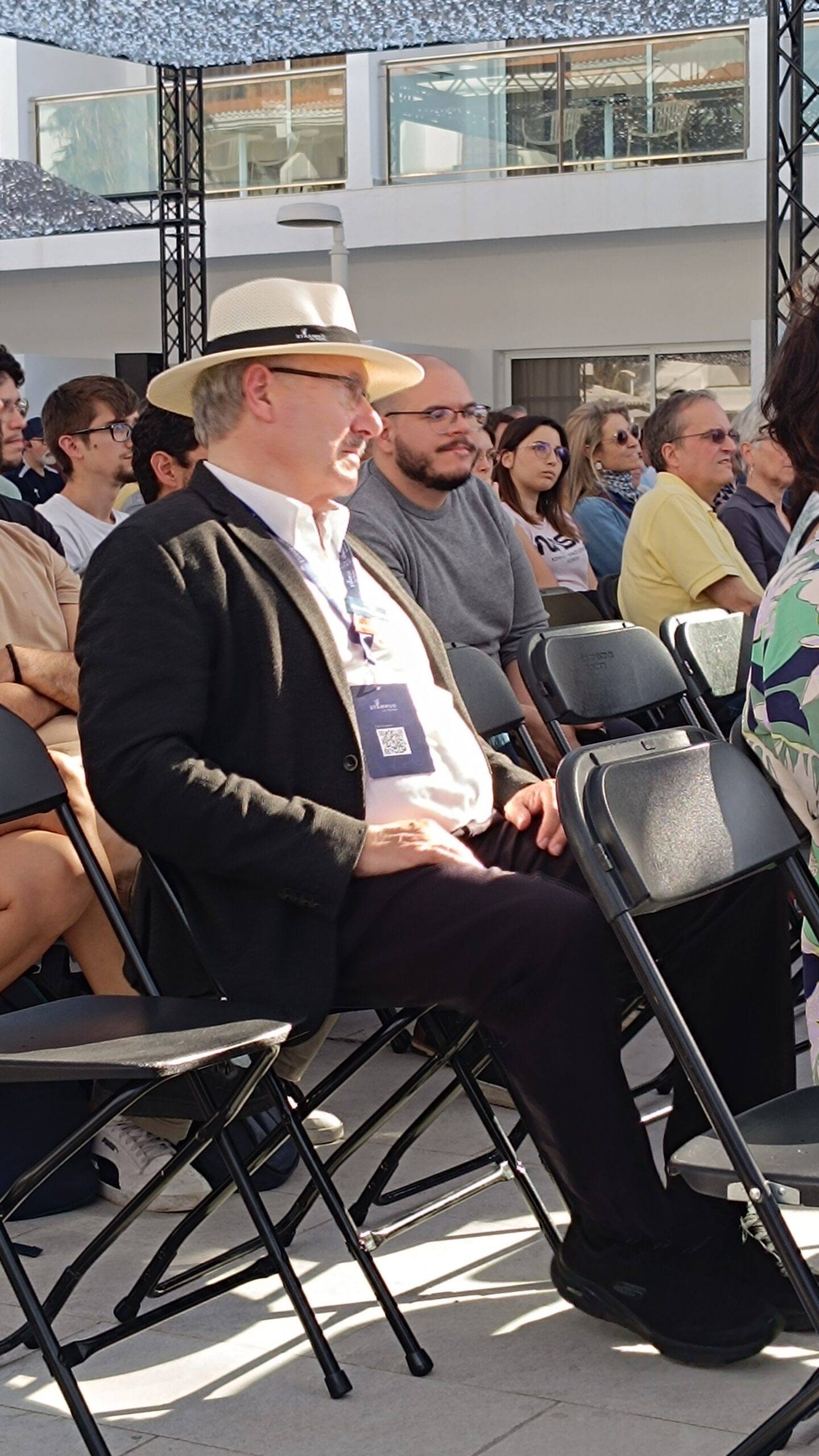
Rafael Rebolo, member of the LIOM Scientific Committee.

